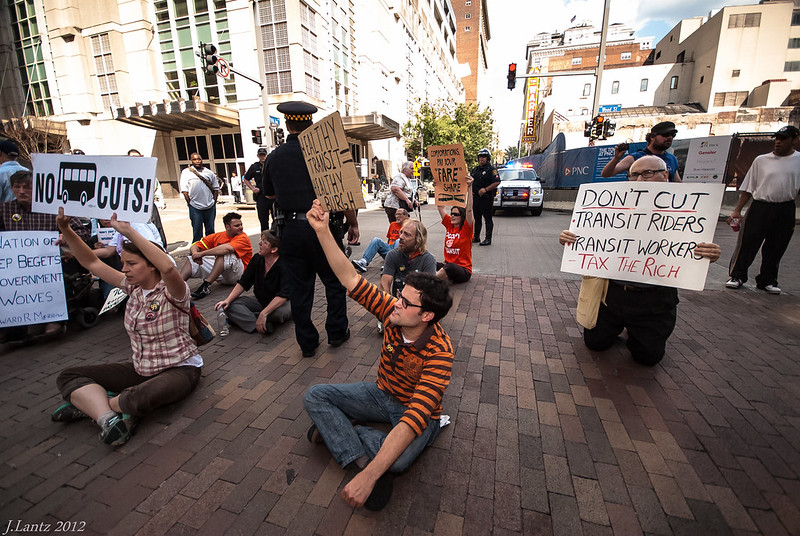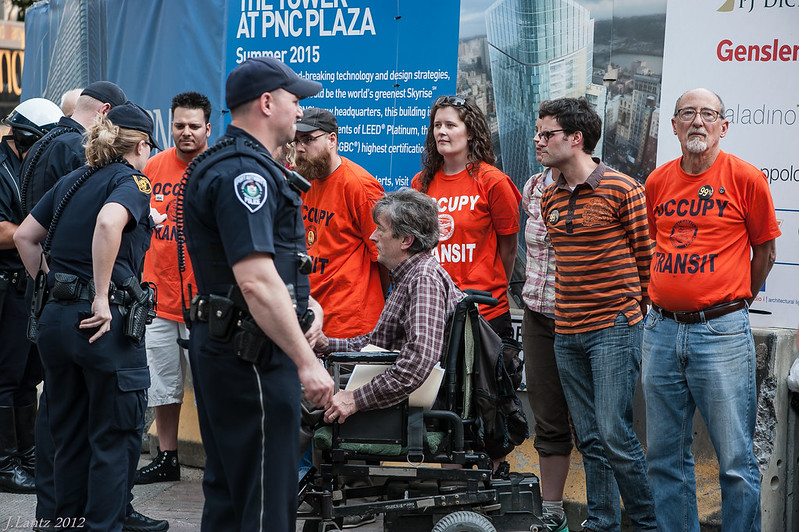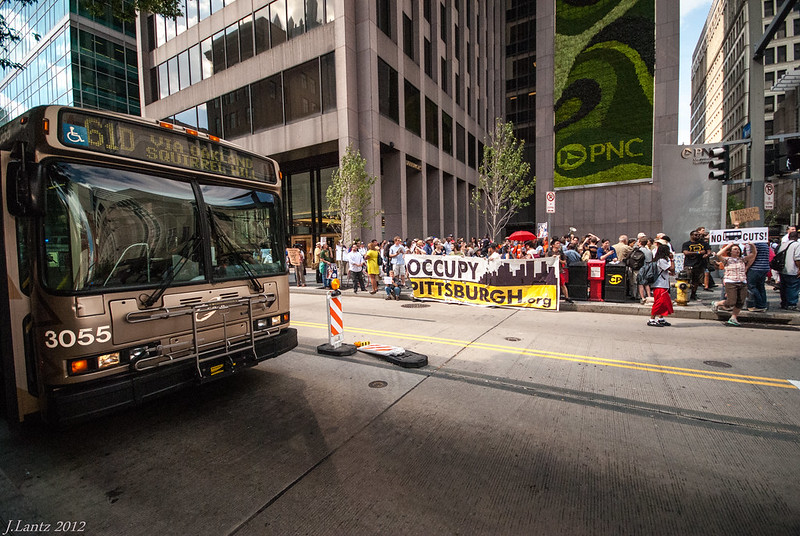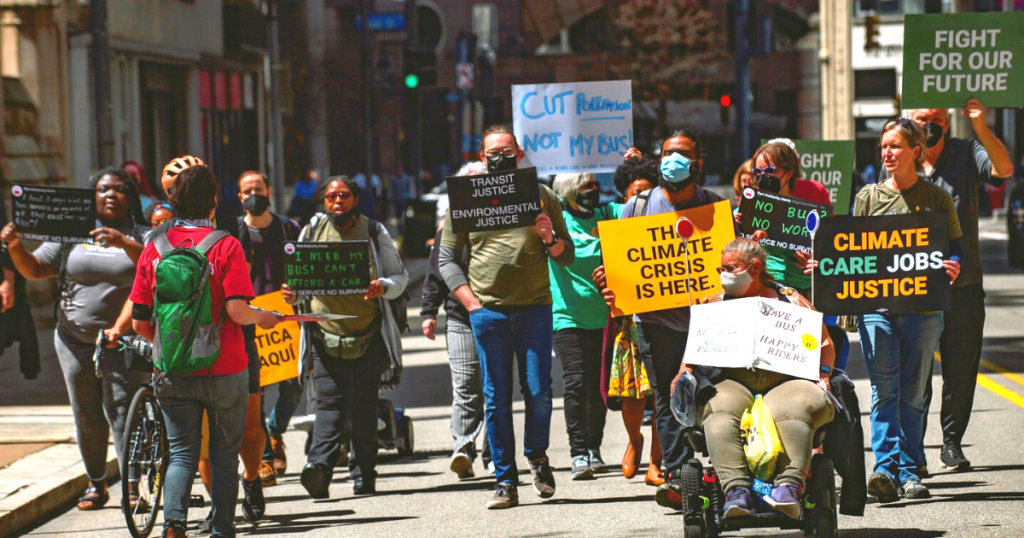
No Service, No Survival. Join or renew your PPT Membership today.
After a decade of transit rider organizing, PPT is winning campaigns and building the movement for transit justice – but we need you now more than ever.
People have always been on the front lines fighting for transit justice in Pittsburgh. Whether from disabled communities, from immigrant communities, or from poor, black and brown communities – our struggle has always been about one thing: access. Access to a seat on the bus. Access to a seat at the tables of power.
Our transit system has been the focus of our struggle because it ties us to everything – jobs, healthcare, education, housing, food, friends, family and all that makes us whole.
In 2012 those leaders who were leading these fights for transit justice came together to start Pittsburghers for Public Transit. And for the last 10 years, PPT has been a growing force.
PPT’s campaigns have improved our transit system. We have expanded service to new neighborhoods, won campaigns for fare affordability, and increased funding to keep our systems on track. But even more so, our campaigns have also stood up to corporate, political, and institutional power to assert the power and knowledge that’s within our communities. In the process, we have built relationships with thousands of people. These people have stepped up to help lead our organization and recruit the next advocate.



But for all that we’ve won, the pandemic has raised the stakes. The battle for transit is bigger and more important than ever.

“We’ve organized and built power, but our service is in danger. I had to travel 2 miles in my wheelchair because 2 buses didn’t show, and in June we’re facing more cuts – with 61 of our 101 routes changing.”
Karen Smith, PPT Member and Disability Justice Advocate
Transit is essential. The pandemic put that on display. Transit has gotten us to our jobs as healthcare workers, grocery store workers, and public servants. Transit allowed us to allow society to function.
But service is being cut back when people need it most. Fares are still the highest in the nation and there are no programs for low-income people. Our buses are regularly behind schedule.